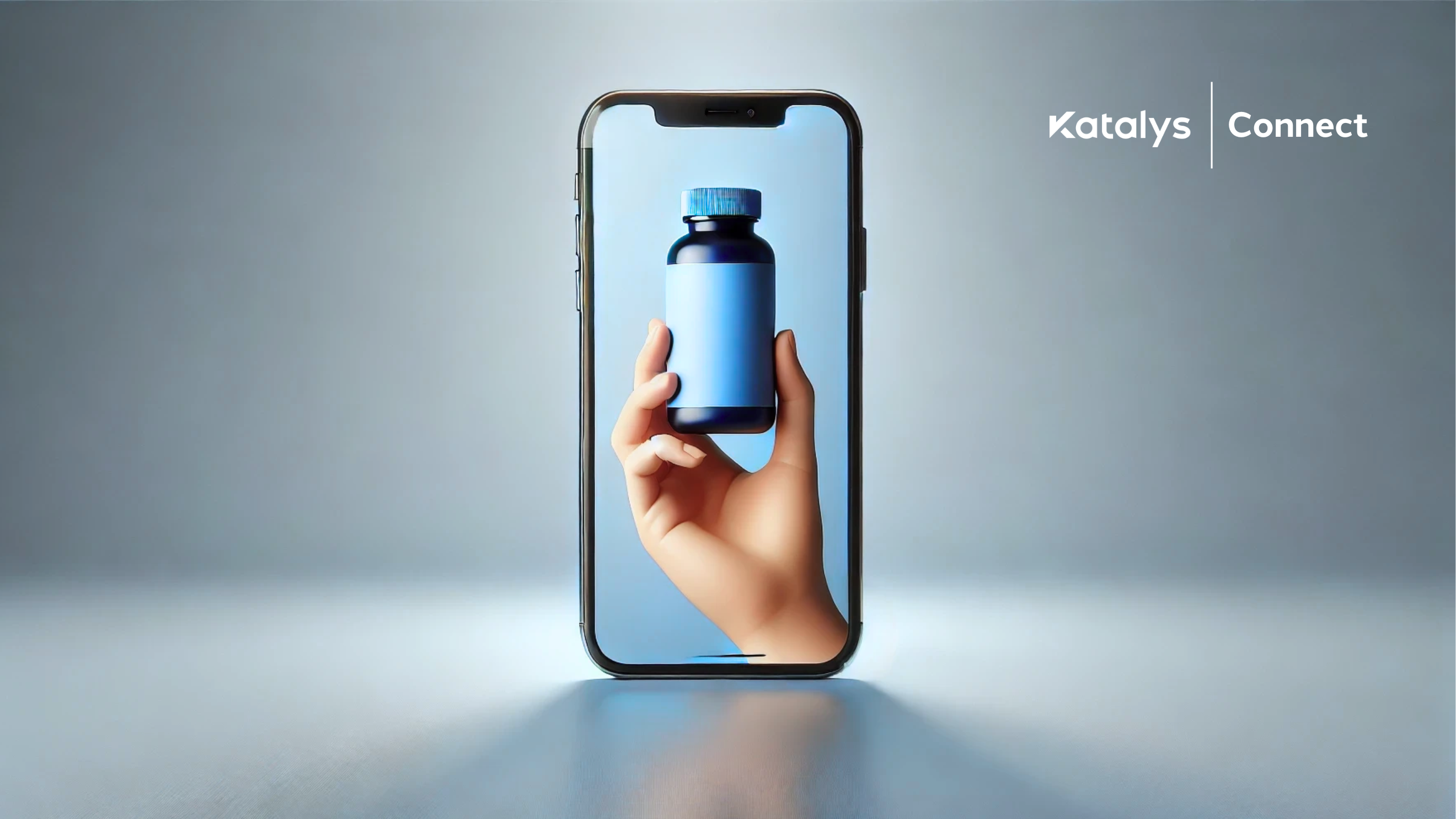Welcome to Katalys Connect – your weekly shortcut to the latest in performance marketing.
[Read time: 4 minutes]
What’s in this issue? Each week we pack the latest trends, actionable insights, and industry breakthroughs into a quick read – ensuring you’re not just keeping up, you’re staying ahead.
- Monetization: Explore how Google’s AI Overview is driving publisher traffic, Meta’s revamped monetization program simplifies creator earnings, and Google faces growing pressure to level the ad tech playing field.
- Growth: Discover how iOS 18’s support for rich text campaigns is transforming engagement, TikTok’s search ads are changing product discovery, and why advertisers may want to move beyond walled gardens during election season.
- The Future of Commerce: Dive into the rise of AI-powered virtual influencers, how AI is reshaping search ads for deeper engagement, and the generational differences driving 2024 holiday shopping strategies.

AI Overview’s Traffic Boost • Google’s AI Overview is increasing publisher traffic by embedding direct links within AI-generated search results, offering publishers greater visibility and new opportunities for content discovery.
- Additionally, Google’s new AI-organized search results offer a more curated experience by grouping results into categories, enhancing navigation for complex topics like recipes and meal planning, with sponsored links still prominently featured.
- Despite initial concerns about AI Overview disrupting organic search traffic, some publishers have found that only a small percentage of queries are impacted and the click-through rates are higher on links with AI overviews.
Meta’s Monetization Revamp • Facebook’s new content creator program aims to simplify earning potential, but it may not be enough to catch up to YouTube’s lead in creator compensation
- The new program consolidates in-stream ads, ads on Reels, and performance bonuses into one simplified system, requiring creators to apply just once for all monetization features and the enhanced Insights tab offering detailed earnings data across content.
- Meta’s $2 billion payout, just 6% of Facebook’s estimated $33.5 billion revenue, pales in comparison to YouTube’s $70 billion payout over three years, which represents 39% of its total ad revenue, raising concerns about Meta’s ability to attract top talent.
Google’s Ad Tech Shift • Amid the ongoing antitrust case, Google faces growing pressure from publishers to embrace header bidding and level the programmatic ad playing field.
- Google’s practice of giving itself the final opportunity to outbid competitors in auctions (the “last look”) has drawn scrutiny, especially in light of accusations that it suppresses fair competition in programmatic markets.
- Industry leaders, including Snopes and The Trade Desk, are advocating for Google to develop a prebid adapter that would enable its AdX exchange to bid alongside other networks in header bidding auctions, effectively decoupling Google Ad Manager (GAM) from AdX and making it more of a neutral ad delivery platform rather than a gatekeeper to premium demand.

Text Campaigns Level Up • iOS 18’s support for rich communication services (RCS) unlocks new opportunities for brands to create more interactive, personalized text campaigns that drive consumer engagement.
- RCS Business Messaging (RBM) allows brands to use their names instead of random shortcodes in texts, enhancing trust and recognition while fostering direct, meaningful engagement without the need to send consumers to external websites or apps.
- Text marketing, already a powerful tool, could see a resurgence as it bypasses email spam filters and social platform algorithms, and while MMS and RCS are more expensive than email, they often drive higher engagement and conversion rates.
TikTok Search Ads Launch • TikTok’s search ads are live, but advertisers remain cautious about reallocating budget from established search channels like Google until performance proves itself.
- Unlike Google’s intent-driven search ads, TikTok’s search ads are positioned as tools for product discovery and research, with a focus on capturing users in a more exploratory mindset as a key differentiator.
- Initial tests of TikTok’s search ads show mixed results, but to combat uncertainty TikTok is offering incentives like ad credits and the ability to reuse existing video creatives to encourage early adoption.
Beyond Walled Gardens • As the election season boosts news consumption, advertisers have a prime opportunity to shift ad budgets beyond YouTube and Meta to credible news platforms.
- With increasing risks from AI-generated deepfakes and misinformation on UGC platforms like YouTube, placing ads on trusted news sites allows brands to avoid these dangers while aligning with credible journalism to foster consumer trust.
- Advertiser concerns over negative news content have led to excessive blocklisting of entire news sites, highlighting the need for open dialogue between publishers and advertisers to enable selective filtering without cutting off access to valuable audiences.

Virtual Influencers Rising • As AI-driven virtual influencers gain popularity, they offer marketing appeal without the unpredictability of human counterparts, but concerns around authenticity, customer trust, and security remain.
- While virtual influencers offer control, they must carefully balance relatable engagement with scripted content by embracing their virtuality to foster emotional connections with audiences.
- Virtual influencers, reliant on complex AI systems and large data sets, pose security risks, making it essential for brands to invest in data security and dedicated teams to protect consumer trust.
New Era for Search Ads• AI-powered search engines are transforming how users interact with search, enabling deeper engagement, personalized experiences, and new advertising opportunities for marketers.
- AI tools synthesize information from multiple sources quickly, allowing users to get faster, more tailored responses while marketers can deliver hyper-personalized ads based on richer intent signals.
- AI-powered search unlocks new ad formats like image extensions and multimedia ads, allowing marketers to create visually engaging campaigns that align with conversational search experiences, driving higher click-through rates.
Holiday Shopping by Generation • Understanding generational shopping behaviors is crucial for tailoring marketing strategies and aligning messaging, media planning, and creative to the preferences of each group this holiday season.
- Younger generations, like Gen Z and millennials, plan to increase their holiday budgets, while Gen X and boomers expect to maintain spending, prompting marketers to highlight value for younger shoppers and trust for older consumers.
- Gen Z relies heavily on social media for gift ideas, while millennials prefer video reviews, and older generations favor in-store visits, emphasizing the need for tailored campaigns across social media, video platforms, and physical retail.



